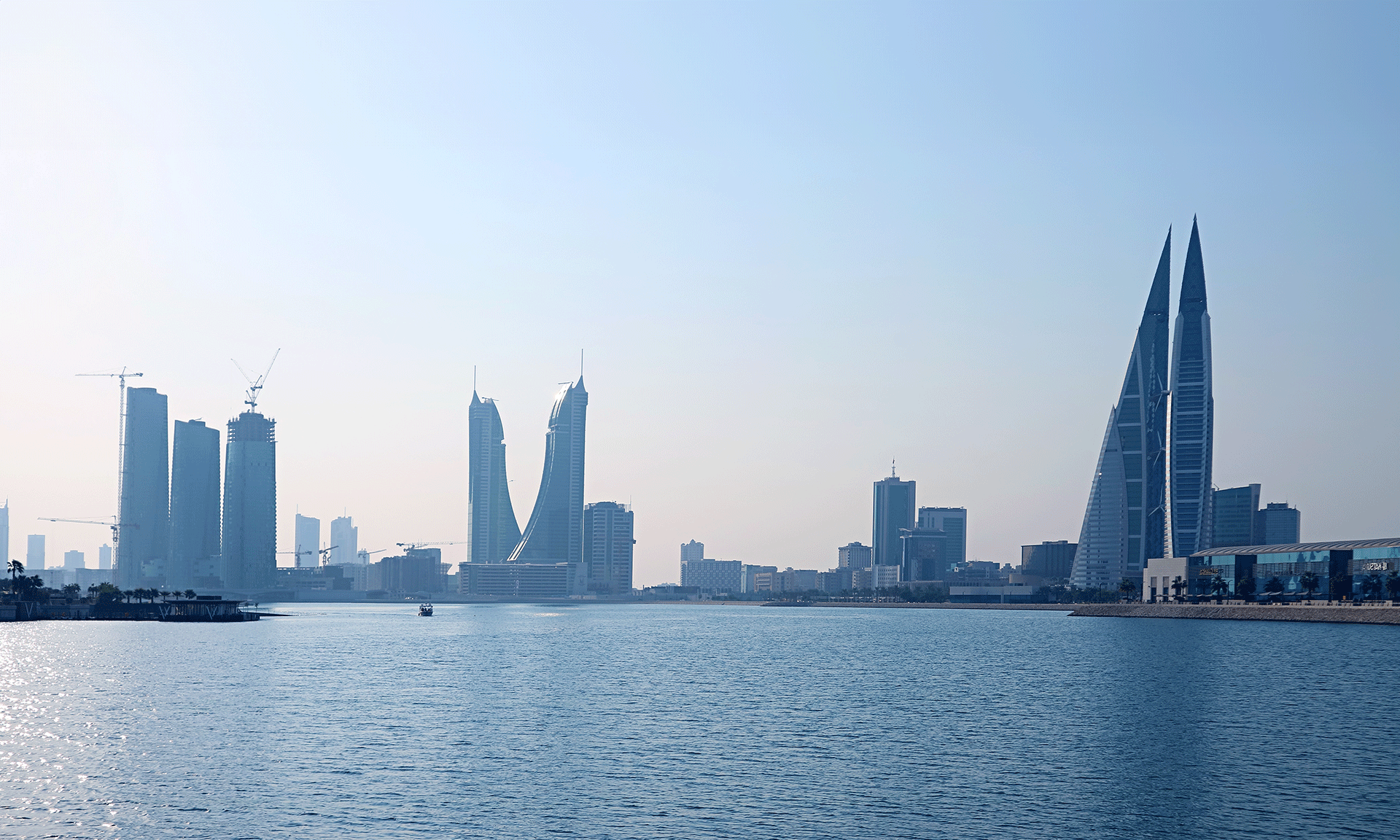
- NEWSLETTER,SAUDI ARABIA
- June 12, 2022
The recent reform initiatives by the National Investment Strategy of Saudi Arabia strongly demonstrated a clear focus on enhancing the country’s economy and transforming it into one of the 15 largest economies worldwide. The Kingdom of Saudi Arabia (KSA) has already rolled out 40 new initiatives to support legislative reforms in the country’s investment landscape by easing and simplifying procedures for company registration in Saudi Arabia.
The Premium Residency Visa is one of the most notable legislative reforms in recent times and besides offering permanent residency, allows investors, ex-pats and workers to enjoy many other benefits too.
Prime Minister King Salman bin Abdulaziz Al Saud, convened a meeting with the Saudi Cabinet on 17th May 2022 and announced a series of new legislative reforms including setting up a Premium Residency Centre and the Unified National Platform for Visas, under the administration of the Ministry of Foreign Affairs.
The legislative reforms are primarily aimed at attracting foreign investments into the country worth USD 100 billion and mostly through the tourism, sports, entertainment, transport and education sectors that could create significant employment opportunities and bring down the unemployment level to as low as 7% by 2030.
Expats looking to work and reside in Saudi Arabia permanently or for a limited period can now apply for Saudi Arabia’s Premium Residency Visa in a much easier and faster way through its newly announced Unified National Platform for Visas in three simple steps. The Saudi Press Agency run by the state informed, “The platforms will be responsible for all submitted work visa applications.”
Expats are now allowed to apply for the Premium Residency Visa through the official website of Premium Residency Centre either for a limited Premium Residency visa, renewable yearly under the SP2 category, or a permanent residency permitting foreigners to reside in the country for an indefinite period under the SP1 category.
The Saudi government in an official statement revealed, “The SP1 qualifies the applicant for permanent residency in Saudi Arabia following the premium residency Saudi Law, after satisfying the required conditions and paying a one-time fee of SAR 800,000.”
In contrast to the one-time fee for permanent residency, an applicant seeking permission under the SP2 category needs to pay an annual fee of SAR 100,000 and must comply with all the mandatory legislative requirements.
Application for the permanent residency or limited-term residency, having no sponsor in Saudi Arabia can be made through the Premium Residency programme subject to meeting the following conditions.
Must have a valid passport
Must be at least 21 years old
Must be free from contagious diseases and proved fitness report
Must submit proof of having no criminal records
Must submit proof of no financial insolvency
Must submit proof of current residency status, if residing in the kingdom while applying
Besides being allowed to reside in Saudi Arabia indefinitely under the SP1 permanent residency scheme, the Saudi Premium Residency visa under both the SP1 and SP2 schemes will also offer many more benefits to the visa holders, including:
- Permitted to carry out businesses as per foreign investment regulations
- No more requirement for an exit and re-entry permit for ex-pats working in Saudi Arabia
- Allowed to apply for visas for families
- Allowed to employ domestic workers including housemaids
- No restriction to own real estate in the kingdom
- Can work in the private sector and switch jobs within this sector
- Allowed to buy and own private transport
- Permitted to use airport lanes dedicated to Saudi nationals
Saudi Arabia is rapidly transforming into a future-looking economy, offering attractive potential and business opportunities to investors for doing business in Saudi Arabia and driving non-oil economic growth in the country.
The top Executive from a reputed multinational business consultancy house remarked, “The new visa scheme is a future aspiration and attraction for expats, especially since there has been a high level of implied confidence and trust in Saudi Arabia’s economic trends recently; outperforming many major developed countries such as US, Germany, Japan, UK, and France.”
“We anticipate an influx of affluent individual investors who will seize this opportunity to incorporate businesses in KSA and take advantage of the booming Saudi market,” the executive noted.

- NEWSLETTER, U.A.E, INDIA
- June 11, 2022
Commenting on the recently concluded comprehensive trade agreement between India and the UAE effective from 1st May 2022, the Indian Commerce and Industry Minister Piyush Goyal remarked that the agreement would help in creating huge job opportunities and boost the growth of the domestic economy of India.
In all expectations, this bilateral pact would enhance the bilateral trade in goods between India and the UAE to more than USD 100 billion and trade in services to over USD 15 billion within five years, he noted.
A high-level delegation from the UAE was on a three-day visit to India last month led by UAE Minister of Economy Abdulla Bin Touq Al Marri accompanied by UAE Minister of State for Entrepreneurship and SMEs Ahmed Belhouli Al Falasi. During this visit, the Indian Commerce and Industry Minister along with the UAE Minister of Economy said in a media briefing that the agreement would open the door for many sectors, primarily the labour-intensive ones including textiles, pharmaceuticals, gems and jewellery, and agriculture.
‘India-UAE Start-up Bridge’ was jointly launched by the two ministers at the India-UAE Partnership Summit, organised by the Confederation of Indian Industry (CII). The immediate and primary focus of this bridge would be to bring UAE investments to India closely working with the private equity houses and venture capital, an official release noted.
Besides, the bridge would help arrange joint training sessions for the incubators of both countries and would mainly focus on developing training modules for incubators in the UAE by identifying the needs during the early stages of business setup in Dubai UAE.
As per an official release, joint programs will also be organized for the startups from the UAE to explore incubation opportunities and company formation in India.
Piyush Goyal while briefing the press highlighted saying, “Clearly millions of jobs will be added if our exports which are now at about USD 36 billion, which is about nearly Rs 2.5 lakh crore, grows as we are planning. And my own guess estimate is this partnership can finally go up to about USD 250 billion of bilateral trade on both sides.”
“So, my sense is that this will give a big boost to economic growth, to jobs. And the opportunities it opens not only in the UAE, but in the larger ground for the African region. (It) should significantly give a bump up to the Indian economy as well,” he noted.
As per the Indian Commerce and Industry Minister, the bilateral trade pact would not only open doors for domestic businesses to UAE but also the other countries as UAE is a gateway for large parts of Africa, CIS countries including Armenia, Azerbaijan, Belarus, Georgia, Kazakhstan, Kyrgyzstan, Moldova, Russia, Tajikistan, and other gulf nations.
Goyal also believed that Indian pharmaceutical products would get easy entry into the UAE market and emphasized saying, “we believe (bilateral) trade will grow to at least to USD 100 billion in the near future…Our own commitment is to take it to a much higher level”
Piyush Goyal sounded upbeat and expected the CEPA framework to add a million jobs in India by offering great opportunities to the startups with enormous potential for educational engagement and skill development.
“We are looking at significant investments as the UAE has committed over USD 100 billion of investments into India in manufacturing, infrastructure, (and) service (s). So, the business will get a booster shot”, the minister highlighted.
The Minister informed about the vast network of Indian startups and said that many startups were set up in the last six years and over 65,000 startups are registered with the ministry. There are over 100 unicorns in India forming the third largest startup ecosystem in the world, as per the Minister.
According to the UAE minister, the pact will contribute to 1.7% GDP growth in their economy and described the trade pact as not just on products and commodities but also on services. The UAE minister hoped for other opportunities to come along as well.
The Indian minister appeared certain that the partnership gain would start flowing from this year itself and pave the path for Indian investors for company formation in Dubai UAE and as evident from the initial deal wins by the Indian gems and jewellery sector.

- NEWSLETTER,U.A.E
- June 10, 2022
The Vice President and Ruler of Dubai, Sheikh Mohammed bin Rashid announced on 14th March 2022, the enforcement of Law No. (9) of 2022 ‘Regulating the Provision of Digital Services’ in the Emirate of Dubai from 24th March 2022 to improve and enhance the quality of digital services in Dubai as well as to drive the emirate’s digital transformation journey. The law complements the federal digital and data laws in the UAE and mandates all Government departments to offer online services in multiple languages with no additional cost burden to the customer.
Dubai Government Media Office said, “Government entities and judicial authorities, including Dubai Courts and Dubai Public Prosecution, as well as non-government entities in Dubai, are required to provide digital services to their customers.”
It also added, “The chairman of the Executive Council of Dubai will issue a decision on the various stages of implementing the Law, in line with the recommendations of the Digital Dubai Authority.”
The law applies to both digital services provided by the Dubai government and non-government establishments and outlines key requirements for efficient and effective delivery of digital services.
The General Secretariat of the Executive Council, the Dubai Digital Authority (DDA) and the Dubai Electronic Security Centre (DESC) are held responsible as competent authorities to oversee the enforcement and implementation of the law that encompasses the delivery of digital services across the entire gamut of digital channels including websites and other internet applications.
A one-year grace period has been provided for meeting the requirements of the law and can be extended by the Executive Council of the Emirate of Dubai. The law speaks of phased roll-out and implementation of the provisions of the law.
The key features outlined in this law are:
1- The law is applicable throughout the Emirate of Dubai, including all the free zones in Dubai and the Dubai International Financial Centre (DIFC).
2- Digital services standards shall be documented and rolled out by the appropriate competent authority for effective implementation by the digital services providers once the technical and organizational requirements for the provision of digital services are identified and established.
3- Disruptions in digital services shall be an essential part of digital services standards needing adequate addressal by the digital services providers through business continuity and data security.
4- Data security and privacy requirements will be the vital features of these legal standards and shall address all requirements including data retention, data classification, data security and data accuracy. Privacy compliance programs must also be periodically reviewed to ensure the fulfilment of all requirements of the law.
5- The Dubai Development Authority (DDA) is responsible for approving the appropriate digital identification tools in line with the electronic transactions and trust services law of the UAE.
6- Digital services need to be provided in Arabic and English as a minimum to ensure accessibility to all Dubai residents.
6- All digital transactions shall be equal in status to physical transactions carried out in person.
7- Digital services provided in Dubai must be easily accessible and all customers are legally binding to update the information to digital service providers as and when necessary.
8- The digital services providers can outsource their services from a public or private sector company, with approval from the Department of Finance.
In Dubai, most of the government departments that previously needed residents to physically visit their offices for bill payments, and tenancy contract approvals have largely transitioned to online services mostly through app-based portals. An in-person visit is now sufficient to get a driving license or residency visa. Even setting up a business in Dubai has become much easier, faster and more affordable in the absence of bureaucracy and red tapes.
Additional technical guides and resolutions for effective implementation of the law shall be issued over the coming months by the DDA and other relevant authorities.

- NEWSLETTER,U.A.E
- May 31, 2022
Recently a huge growth in demand for office spaces has been witnessed in Dubai intensifying at the highest rate in the last five years, the latest Real Estate Property Data revealed. Such an impressive hike in demand hasn’t been seen in years and this has happened at a time when a large number of foreign businesses are exploring office options for either relocating part of their business operations or expanding their businesses further in the UAE market.
Warehouse, retail and office spaces have been seen in high demand and the office space occupancy level touched 81% in the city, the highest since 2016. Rental prices soared significantly and went up by as much as 35% in all popular districts. CORE, the commercial real estate services firm reported.
A study conducted by Savills, one of the leading property agents in the world also recently reported that Dubai is, at present, the only city within the Europe, Middle East and Africa territory to record the highest office occupancy levels.
The office space demand boost has mainly been generated by businesses engaged in technology and services sectors including companies in the digital currency and Fintech fields. Dubai, in the last few months also issued a record number of new business licenses and Ejari, the mandatory registration of tenancy contracts by Rera.
Robert Thomas, Head of Real Estate Research and Advisory at CORE, noted, “A surge in enquiries is coming from EU/UK and other international markets wanting to expand in Dubai due to its favourable and open business environment.”
“Dubai is also seeing an influx of many international firms relocating their staff and operations from Russia and Ukraine,” he informed.
As per Robert Thomas, even though many existing businesses have adopted a hybrid working model in Dubai, the majority of employers are now getting their workers back to their offices and retaining existing office spaces.
As Dubai has put in place, progressive cryptocurrency regulations and frameworks, the city is also attracting many cryptocurrencies-related businesses, Thomas highlighted.
The UAE has recently announced several reforms including new visa rules for attracting tourists, global talents and foreign investments. As per CORE, these reforms can be “game-changing” and “an unprecedented catalyst” for the real estate market growth in Dubai.
Rental Prices
Dubai rental prices have been on the lower side from a global perspective however started marching northwards at the start of 2022. Rental prices for offices have begun to witness huge spikes at prime office locations as demand has grown significantly among tenants looking for larger floor spaces.
The rental prices are mainly soaring in those business districts which are popular with foreign businesses including Sheikh Zayed with leasing rates soaring by 35% during the first quarter of 2022 followed by One Central with a 29% jump, Business Bay and Jumeirah Lakes Towers with 29% hike and Downtown Dubai with16% increase.
Bur Dubai, Deira and Garhoud, the old Districts in Dubai which struggled earlier to maintain higher rental prices are also seeing price increases exceeding 10%.
In the first quarter of 2022, a total office space of 480,000 square feet was delivered in Dubai clocking a new high and bringing the office supply to 107 million square feet in the city.

- Article, Singapore
- May 23, 2022
There is no doubting that corporate secretary is another of the crucial posts that should not be left unfilled in the smooth operation of a business. Even though professional corporate secretary doesn’t really make decisions, they guarantee that every decision made has been reported to the appropriate individual. Actually, their functions and responsibilities are extensive, and they play a critical part in the firm’s efficient running.
When you have taken the decision to export your business’s secretarial responsibilities, you must make an intelligent decision. You don’t want to employ a firm just to come to repent your decision later. In this post, we will discuss the blunders you should avoid while outsourcing business secretarial services.
Some Mistakes You Should Avoid When Employing Company Secretary Services Singapore
Below are a couple of things to keep in mind when you are exporting your firm’s corporate secretarial responsibilities.
Putting Your Trust in any Inexperienced Agency:
Many managers are prone to depending on the very initial corporate secretarial firm they come across simply because people are in the rush. When you have been performing this, it is indeed time to changing company secretary in Singapore plan. Corporate secretarial firms are not all made equal, and thus the grade of services provided may differ from company to company. Utilise the assistance of an expert corporate secretarial firm to obtain a greater return upon your investment.
Choosing the Most Cost-Effective Service:
With many more service suppliers to pick from, it may be difficult for anyone to select the finest one. Some businesses charge cheap rates to entice naïve customers. Even if you are having financial difficulties, you shouldn’t ever focus your search just on price.
This is usually a great idea to investigate several agencies and see what they want to provide. Rather of choosing a service supplier just on pricing, spend a bit of time researching essential factors such as expertise, services offered, and reputation, to name a few. Your research should not end there because you have to choose an agency which best fits with the aspirations and goals of your organisation.
The Value of Singapore secretarial compliances for a private limited company
Every firm has secretarial chores which should be performed by competent employees to achieve optimal business efficiency. Yet, keeping up with these responsibilities may be difficult when you are operating a complete firm on your own.
For example, the Corporations Act requires companies to produce certain paperwork by specified timeframes, which would be the job of corporate secretaries. Businessmen may easily fix this problem by outsourcing corporate secretarial solutions that will free up their time to concentrate on other important company activities.
Accurateness:
Running a business is a difficult endeavour wherein the efficiency and correctness of the overall process are important. Companies can benefit from correct and timely management of vital business tasks by exporting secretarial solutions. As a consequence, any possible legal difficulties are avoided because all legal procedures are completed on time. Therefore, you didn’t have to think about handling the filing of finance or taxes reports because experienced corporate secretarial compliances in Singapore may simply manage it.
Experience and knowledge:
While running a business, particularly a new one, you need every expert assistance you can obtain. It is obvious that every organisation may now engage skilled personnel with experience in addressing various administrative concerns. However, this is very viable to outsource secretarial services since you would be working with a certified, skilled, and experienced corporate secretary.
Conclusion
Exporting corporate secretarial responsibilities is another of the finest moves you would ever make throughout your quest for business success. You must take caution while selecting a service supplier, just like you would with anything else. You will never repent your decision if you take this move.

- NEWSLETTER, GLOBAL
- May 16, 2022
We are delighted to announce that IMC Group has reached an outstanding milestone – 10,000 followers on LinkedIn and we could not be more pleased. A huge thank you goes out to each one of you who follows us, likes our posts, and shares our content. We appreciate your constant support and enjoy engaging with you all. You are helping us grow and we are really grateful for this.
10,000 followers is an exceptional result that we have reached in a short span of time. It reflects our increasing brand awareness within the biggest professional network in the world. We endeavour to bring interesting, insightful and meaningful content that adds VALUE to you.
We sincerely appreciate and thank all of you for your continued support and encouragement. Your engagement with us inspires us to do better with every post that we share with you.
And lastly, if you aren’t already following IMC Group, join us today and be a part of our IMC family. Following us on LinkedIn will allow you to:
#Learn – Be the very first to find out about our latest innovative solutions. Get informed about our new technologies, special ventures and other insights.
#News and Updates – Keep up to date with our latest news, events, key industry insights and trends within the sector.
#Hiring – Learn about our new vacancies and get the opportunity to join our exclusive team.
We hope to count you soon as one of our followers on LinkedIn.

- NEWSLETTER,OMAN
- May 11, 2022
The Ministry of Commerce, Industry and Investment Promotion (MCIIP), in cooperation with the government and private sectors, announced at Oman Convention and Exhibition Center (OCEC) on Sunday, 17th April 2022, 18 investment opportunities with a total investment exceeding RO 1.5 billion.
The event was inaugurated under the sponsorship of H E Salim bin Mohammed al Mahrouqi, Minister of Heritage and Tourism who described these proposed projects as an integrative model of many such future opportunities holding huge promise for foreign investment and doing business in Oman. The Minister noted that the investment opportunities in the tourism sector alone will surpass more than OMR 20 billion in the next 20 years.
The investment opportunities announced through the “Invest in Oman” platform will be in the tourism and circular economy sectors, in cooperation with the public and private sectors, and will concentrate on waste management projects mostly focusing on electrical & electronic equipment waste recycling, establishing biogas plants to mainly turn organic and sanitary waste to sustainable energy and fertilizers, all waste to energy recovery projects, converting used cooking oil into biofuel, recycling of glass waste, green waste recycling including waste paper and cardboard, recycling of copper and aluminum, lead-acid battery treatment facility and fish waste recycling.
These investment opportunities also include several tourism projects spread over various governorates of the Sultanate of Oman.
The investment opportunities announced were in partnership with the Muscat National Development and Investment Company (ASAS), the Omani Tourism Development Company (Omran), Omani Environmental Services Holding Company (Be’ah) and the Jabal Busher Heights Real Estate Development Company.
The projects focus on attracting qualitative investments in the sectors targeted for economic diversification and creating a conducive environment for all such investments to grow and succeed. These investment opportunities will act as a catalyst to increase the proportion of foreign direct investment in the national GDP.
H E Asila Salim al Samsamiyah, Undersecretary for Investment Promotion in MoCIIP added, “During the past year and early this year, the ministry launched several investment opportunities in the industrial sector, and it also activated several incentive programmes for investors.”
She also pointed out saying, “Out of the 18 investment opportunities, six are in the tourism sector with an investment volume of approximately RO 974mn and 12 investment opportunities are in the circular economy sector waste management worth RO 528mn.”
Importers Directory Service will be started by the Ministry at the earliest to provide a database of global importers in more than 180 countries around the world and to help Omani exporters, institutions and commercial companies operating in the sultanate to increase the volume of their exports to various countries of the world.
As per MoCIIP, the biogas plant allocated in Barka landfill will have a capacity to treat up to 150,000 tonnes per year of organic waste and produce about 4-6 megawatts of electricity that will be connected to the main network for household usage and in other areas as the case may be.
Oman has announced many such investment opportunities and policy reforms over the last year for attracting foreign direct investments into the country and when it comes to How to register SMEs in Oman, the country is bringing in sweeping changes in all ‘company incorporation in Oman’ procedural details.

- NEWSLETTER,U.A.E
- May 11, 2022
The UAE Federal Tax Authority (FTA), in an official report dated 21 April 2022, revealed that the number of VAT registrants had increased to 367,157 in the first quarter of 2022, compared to 358,468 in Q1 of 2021, an increase of 2.42%.
In its second yearly meeting chaired by Sheikh Mohammed bin Rashid Al Maktoum, the Deputy Prime Minister and Ruler of Dubai; the FTA Board of Directors adopted the tax authority’s financial statements for 2021.
The meeting held at the FTA headquarters in Dubai reviewed a report on the FTA’s plans to develop and improve the procedures of UAE’s existing tax system in line with the best international standards and practices. Implementing systems and procedures for improved customer services through fast, accurate, and user-friendly digital platforms were also discussed in the meeting. The status of progress on developing the draft corporate tax law was also reviewed by the FTA board.
Upgradation of FTA Services
Directives were issued by the FTA Board Chairman, Sheikh Maktoum on maintaining the pace of upgrades made to the services of the tax authority, complying with international best practices and adhering to the digital transformation plans, specifically developed to boost the country’s competitive edge in terms of services provided to the taxpayers and help realize the country’s vision to become one of the world’s highest-ranking governments based on trust and performance.
The government of Dubai Media Office in a statement noted, “The directives aim at focusing on the customer and enhancing competencies to become a world leader in government services, drawing on the UAE’s ‘Principles of the 50’ and the terms of the new methodology for government action”.
Enhanced Customers Satisfaction
The reports which were presented in the meeting highlighted the efforts of FTA to maintain high scores in the service performance across all areas and activities. Sheikh Maktoum reviewed the plans of the tax authority to enhance services for ensuring satisfaction for all clients and representing all segments of society.
The FTA Chairman added, “The Federal Tax Authority is committed to strengthening its relations with all entities involved in implementing the tax system in the government and private sectors, and to fulfilling its role in driving nationwide economic diversification policies through the administration and collection of federal taxes, in line with best practices.”
“The authority is constantly reviewing the executive regulations it issues for each tax legislation to ensure top-level performance and streamlined procedures. The stages ahead will witness sweeping developments and upgrades to tax systems and procedures to enhance the quality of the FTA’s services,” Sheikh Maktoum highlighted.
Report
The report detailed the accomplishments of the tax authority over the last year and the first quarter of 2022, documented the status of progress made on existing projects and provided all statistics regarding Value Added Tax (VAT), Excise Tax, Tax Returns, tax payments, and all refund requests already processed.
The report revealed that compliance with tax regulations continued to grow in all the emirates across the UAE. The number of Excise Tax registrants has also grown, registering 1,398 numbers compared to 1,357 last year with an increase of 3.02%. Besides, the number of Tax Agents has also increased to 446 nos compared to 433 with a net increase of 3%.
New applications from UAE citizens for VAT refunds on expenses incurred on building new residences were promptly approved by the tax authority and the value of refunds totalled AED185,038,134 during the first quarter of 2022 compared to AED118,503,245 in the first quarter of 2021, registering a huge growth of 56.15%.
This staggering increase in refunds reflects the FTA’s commitment to streamlining online procedures of VAT refunds for UAE citizens building their new houses. This also highlights the country’s vision to develop a modern society with an affordable housing system for citizens and ensure their wellbeing. Enhanced customer satisfaction, as a policy and objective form the core of functionalities of all the government institutions including the FTA.
The report also highlighted the results of the implementation of two phases of the ‘Marking Tobacco and Tobacco Products Scheme’, aimed at preventing the sale or possession of all types of cigarettes including waterpipe tobacco (Mu’assel), and electrically heated cigarettes, not carrying the Digital Tax Stamps in local markets for tax evasion.

- NEWSLETTER,U.A.E
- May 11, 2022
In April 2022, the UAE Cabinet, headed by Sheikh Mohammed bin Rashid Al Maktoum, the Vice President, Prime Minister and Ruler of Dubai, has rolled out flexible requirements for investors and entrepreneurs including the startup owners to apply for the UAE Golden Visa and Green Residency Visa under a new set of executive regulations. This is considered to be the most extensive set of reforms which will come into effect in September.
The startups in the UAE can now obtain the UAE Golden Residence visa, a long-term 10-year UAE residency visa more easily under the revised visa regulations.
The new Green Residence permits will allow the investors, partners, freelancers and self-employed individuals engaged in establishing or participating in commercial activities five years of residency in the country. It replaces the earlier residence permits that were valid for 2 years only.
The new system of entry and residence in the UAE will attract and retain global talents and a skilled workforce across the world and will make the local job market more flexible and competitive.
The new visa rules will enable the startups and SMEs to more conveniently hire foreign professionals and provide incentives for the investing communities to relocate to Dubai UAE due to the availability of talent pools. Professional Dubai Pro services can help startups and SMEs identify the most suitable and affordable ex-pats and recruit them for their organizations.
The new simplified visa rules will automatically boost the country’s investment segment increasing the likelihood of easy financing for the country’s startup ecosystem. Startups and SMEs can benefit significantly if they opt for outsourcing PRO Services in Dubai for facilitating fundraising activities.
Many small technology startups who can’t afford full-time professionals and are heavily dependent on freelancers, can now take a deep sigh of relief as the new visa rules will attract many such freelancers into the country. UAE is all set to witness an influx of technology professionals who can help realize the nation’s ambitious vision for the digital economy and new age of innovative and smart technologies such as AI, ML, IoT, AR, Big Data and many more.
Many startups and tech industry experts believe that the reforms will make Dubai and the other emirates more attractive to the short as well as long-term residents and professionals.
Many industry leaders confirmed that the new immigration system will act as an incentive to launch businesses in the UAE making significant and valuable contributions not only in the Emirates but the wider Middle East as well. The new rules will underscore Dubai’s growing role as the key catalyst in attracting businesses both in the region and globally.
The newly introduced job exploration entry visa doesn’t need a sponsor and addresses the long-existing issues of people coming to the UAE on tourist visas searching for jobs. This visa makes it legitimate for jobseekers to attend interviews and search for employment in the country without needing 30 or 90-day tourist visas to look for a job and subsequently shift to an employment visa after getting a job. The people, however, must meet certain skill sets outlined by the Ministry of Human Resources and Emiratisation. This will provide a huge stimulus to both startups and the job market in the UAE.
People from around the globe who are planning to visit the UAE either for business, jobs, or pleasure can now avail themselves of a variety of visa options without needing a host or sponsor for the first time. All entry visas, under this new system, are available for single or multiple-entry and can be renewed for similar periods with a validity of 60 days from their issuance date.

- NEWSLETTER, BAHRAIN
- May 11, 2022
The business landscape in Bahrain is constantly evolving; through economic policy reforms, simplification of business processes, huge investment in physical and digital infrastructure and enhancement of regulatory procedures. The country is focusing on non-oil futuristic target sectors for increased competitiveness and sustainability and attracting foreign investment through Bahrain company incorporation in the areas of opportunity identified by economic indicators.
A recent study made by one of the oldest and leading management consultancy firms revealed that this island gulf country has registered the highest foreign direct investment per capita amongst the GCC nations with an FDI inward stock of 92% in terms of national gross domestic product (GDP) bearing testimony to Bahrain’s relentless efforts to diversify the economy and attract foreign investments.
‘Bahrain’s national strategy is pivoting to become more sustainable and competitive by investing in future-defining oil-proof sectors, as the Covid-19 pandemic underscored the need for economic growth through the accelerated uptake of innovation and digital economy,’ the management consultancy highlighted.
A leading consulting firm in its recent report titled ‘Situating the Kingdom of Bahrain in a Future World: Opportunities for Foreign Investment’ noted, ” As a result, Bahrain has amplified plans for economic diversification through Foreign Direct Investment (FDI), backed by several competitive advantages that make FDI attractive”.
The opportunities and challenges facing Bahrain in consideration of economic activities in the neighbouring countries and increasing technology-oriented economies are highlighted in this report. Insights on how the country can overcome these challenges to become a global economic powerhouse are also noted in this report.
“Despite being a smaller market in regional terms, the kingdom’s highly favourable investment environment is clear for all to see,”
“The country has the infrastructure and potential to attract robust FDI across various emerging sectors in the short, medium, and long term, with projects holding high success rates in areas such as renewable energy, health management, financial services, cloud computing, and technology incubation,” the report emphasized.
“Challenges always accompany opportunities, and disruption of varying degrees will continue casting uncertainty as national ambitions are pursued in the years ahead. However, Bahrain is favourably positioned to not only capitalise on FDI openings but also create the same vibrant future that the kingdom’s leadership and wider business community both envisage,” the report noted.
“As Bahrain prepares to move forward, driving innovation, establishing new partnerships with neighbouring countries, and utilising existing resources are viable, effective avenues for overcoming the most difficult challenges at hand,” said Mr Buelow.
“Technology will certainly be a key enabler of any positive eventualities and central to all future economic activities. Consistent implementation over the long haul will be key to success,” the partner at ADL remarked.
The report sheds light on How to start SMEs in Bahrain and realize the economic objectives by utilizing the country’s specific competitive advantages including low cost of doing business, full foreign ownership, skilled local workforce, high responsiveness of the government, series of global trade agreements with 22 FTAs, 34 FIPAs and 40 DTAAs.
A Member Firm of Andersen Global
- 175+ Countries
- 525+ Locations
- 17,500+ Professionals
- 2350+ Global Partners


















 IMC Group
IMC Group